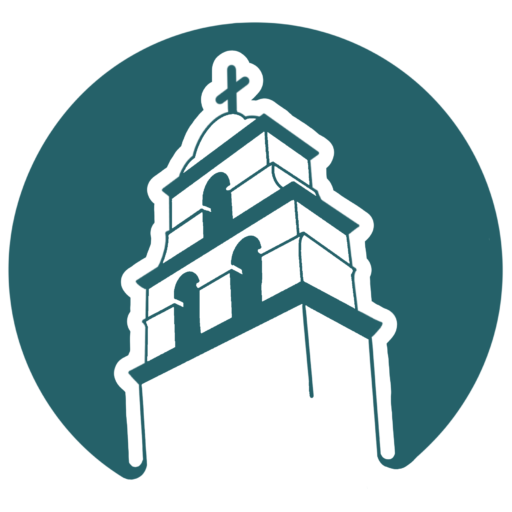There is a story, believed to be true, about Abraham Lincoln, just before the close of the Civil War. Landowners in the Deep South were cutting their losses, liquidating their slaves before slavery was banned, and President Lincoln came upon a slave auction in progress. A young girl was placed upon the auction block, in front of all the bidders and gawkers. With defiance and disdain, the woman scanned the crowd, daring someone to start the bidding. Lincoln did – and when he won the bid and took possession of the young woman, she was belligerent. “What are you going to do with me?” she asked. “I’m going to set you free,” the president answered. “Set me free? What do you mean, ‘Set me free?’ Free for what?” Abraham Lincoln said, “Free. Free to do what you want to do. Free to go where you want to go.” The astonished woman replied, “Then I choose to go with you.” After a lifetime of yearning for freedom, the first thing this former slave chooses to do when she becomes free was to yield herself back under the authority of someone else. This is our call. By sacrificing his own life on the cross Jesus has set you and I free. Shall we use our freedom to help others to overcome their spiritual blindness.
——————————————————————————-
Helen Keller, so brave and inspiring to us in her deafness and blindness, once wrote a magazine article entitled: “Three Days To See.” In that article she outlined what things she would like to see if she were granted just three days of sight. It was a powerful, thought-provoking article. On the first day, she said, she wanted to see friends. Day two she would spend seeing nature. The third day she would spend in her home city of New York, watching the busy city and the workday of the present. She concluded it with these words: “I who am blind can give one hint to those who see: Use your eyes as if tomorrow you were to be stricken blind.”
————————————————————————–
A hermit asked his disciples: “When do you say that the night is ended and it is morning?” The first disciple said: “I say that it is morning when I can distinguish an oak tree from a maple tree.” The hermit said: “No.” The second disciple answered: “I know it is morning when I can distinguish a cow from a sheep at a distance.” Once again the hermit disagreed. The third disciple replied “It is morning when no star is visible in the cloudless sky.” “That is also a wrong answer,” said the hermit. Then he explained:” I know it is morning when I can recognize a person as a son or daughter of God, and, hence, my own brother or sister.”
Fr.Joseph Antony Sebastian
St. Joachim Church
21255 Hesperian Blvd Hayward, CA, USA 94541
Office Phone: 510 783 2766
******************************
Nota de nuestro pastor:
Hay una historia, creída que es cierto, de Abraham Lincoln justo antes del cierre de la Guerra Civil. Terratenientes en el Sur eliminaban sus pérdidas liquidando a sus esclavos antes de que la esclavitud fuera prohibida, y el Presidente Lincoln llegó a una subasta de esclavos en proceso. Una joven fue colocada sobre el bloque de subasta frente a todos los pujadores y curiosos. Con desafío y desprecio, la mujer analizó a la multitud, retando a que alguien se atreviera a empezar la oferta. Lincoln lo hizo – y cuando ganó la compraventa y tomó posesión de la joven, ella fue beligerante. “¿Qué vas a hacer conmigo?” le preguntó. “Voy a liberarte”, respondió el Presidente. “¿Liberarme?” ¿Qué quieres decir ‘Liberarme?’ Libre para qué?” Abraham Lincoln dijo, “Libre. Libre para hacer lo que quieras hacer. Libre para ir donde quieras ir.” La mujer asombrada respondió, “entonces voy contigo.” Después de una vida de anhelo por la libertad, lo primero que esta ex esclava decide hacer cuando ella es libre, fue ceder a sí misma bajo la autoridad de otra persona. Este es nuestro llamado. Sacrificando su propia vida en la Cruz, Jesús nos ha liberado a ti y a mí. Usemos nuestra libertad para ayudar a otros a superar su ceguera espiritual.
——————————————————————–
Helen Keller, tan valiente e inspiradora para nosotros en su sordera y ceguera, una vez escribió un artículo de revista titulado: “Tres Días Para Ver”. En dicho artículo expuso qué cosas le gustaría ver si se le otorgara solamente tres días para ver. Fue un artículo potente y sugerente. En el primer día, dijo, ella quería ver a sus amigos. En el segundo día pasaría viendo la naturaleza. El tercer día ella pasaría en su ciudad de origen en Nueva York, viendo el ajetreo de la ciudad y la jornada de trabajo del presente. Concluyó con estas palabras: “yo que soy ciega puedo dar una pista para quienes ven: utiliza tus ojos como si mañana fueras afectado por la ceguera.”
——————————————————————–
Un ermitaño le preguntó a sus discípulos: “Cuando dices que la noche se termina y es mañana?” El primer discípulo dijo: “Digo que es por la mañana cuando puedo distinguir un roble de un árbol de arce”. El ermitaño dijo: “No”. El segundo discípulo respondió: “Sé que es mañana cuando puedo distinguir una vaca de una oveja a la distancia”. Una vez más el ermitaño no estuvo de acuerdo. El tercer discípulo respondió: “Es cuando ninguna estrella es visible en el cielo despejado por la mañana”. “Eso también es una respuesta incorrecta,” dijo el ermitaño. Luego explicó: “yo sé que es de mañana cuando puedo reconocer a una persona como hijo o hija de Dios y, por tanto, mi propio hermano o hermana.”
Fr.Joseph Antony Sebastian
St. Joachim Church
21255 Hesperian Blvd Hayward, CA, USA 94541
Office Phone: 510 783 2766
